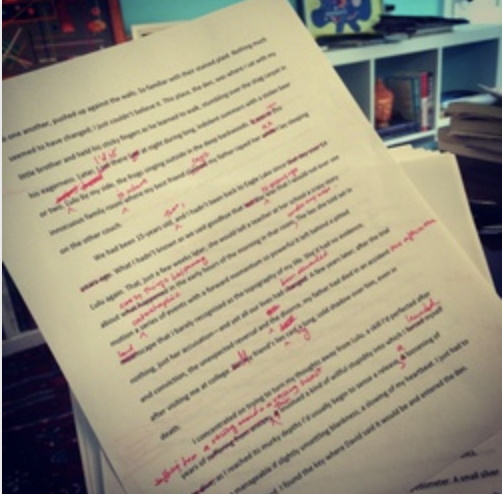Inside an Editor’s Mind: Reading First Pages
 I used to wonder how it was possible that the first five pages of a manuscript could matter so much. Especially in fiction, when the story hasn’t yet been established, how could an editor form an intelligent opinion on the work — or the writer — without digging deeper? It seemed unfair and shortsighted.
I used to wonder how it was possible that the first five pages of a manuscript could matter so much. Especially in fiction, when the story hasn’t yet been established, how could an editor form an intelligent opinion on the work — or the writer — without digging deeper? It seemed unfair and shortsighted.
Then, I became a freelance editor. I realized that I was constantly making snap judgments. I had to — if I wasn’t going to end up taking on a project, it was stupid for me to spend an hour figuring that out.
This shed a lot of light on how agents and publishing executives work. I’m less concerned than they are with commercial viability as my role usually comes during the early part of the developmental cycle, when it can be hard to tell how much potential a project really has. But agents and editors are asking themselves many of the same questions I’m asking as I read. Here are the four main ones:
1. Is there voice?
The very first thing I notice is the authorial voice. I don’t make judgments at this point (do I like it or don’t I?), but I am actively looking for voice. It tells me that the writer is confident and has something to say. It helps me begin to figure out the writer’s level of experience.
2. Is the writing itself promising?
I’ll usually read the first few paragraphs and then flip ahead to some later pages. I do this very quickly. You’d be amazed at how much you can tell from reading just a few pages.
Obviously, if the writing is stilted or confusing or longwinded or far too brief, there’s a problem in style that is going to be pervasive to the project. (This can be fixed, but usually not by an editor. In this case, I’ll often write back with my first impressions to at least give the writer something to work with.)
3. Who are you?
I already have a sense of the writer from the initial email. I’ll pay a little closer attention if the person has been referred to me (or mentions specifically why they want to work with me). Look, we’re all human.
This business about showing preference for referrals happens at all stages of the process. The important thing to know here is that a referral will never make a reader like your work (and offer representation or buy your book), but it will make them read. It may make them read more generously or give you a little more feedback (which is time consuming), but it will have no impact on whether or not they think your work is good or the right fit for them.
In nonfiction, the writer's bio is very important. Here, I’m taking a guess at whether I think this person has a chance of being traditionally published. I’m asking myself things like: Does she have the right credentials? Does he have a sense of what lies ahead in terms of marketing needs? Will readers trust her? Is there already a great platform that will impress industry professionals? If not, do I think s/he can build one? I can never know definitively whether my guess is right or not, but I need to decide which path I think the writer is on in order to be able to help him.
4. Has the writing given me a reason to go back and read more?
At this point, I go back and settle in to read the pages more carefully. Now I’m onto a different level of analysis. I’m asking myself if the writing hangs together — is there continuity and flow? Is there something that piques my interest? Are there identifiable problems already, and if so what are they?
For me, this is when I will know whether this is a good project for me to work on. My criteria is simply whether or not I think I can help the writer achieve his or her goals.
For agents or editors, this is the moment when they decide if they feel personally invested enough — in the story, characters, or in your unique idea — to continue reading.
Also, they are asking themselves if they can make money from this project. Don’t sniff at them: it’s how they pay their bills. If they don't think there's at least a chance of making money on your book, why should they invest time and energy on it?
***
All this information can be gleaned from some sample pages, or from a nonfiction book proposal. What do you think? Does it make sense or seem crazy to you?